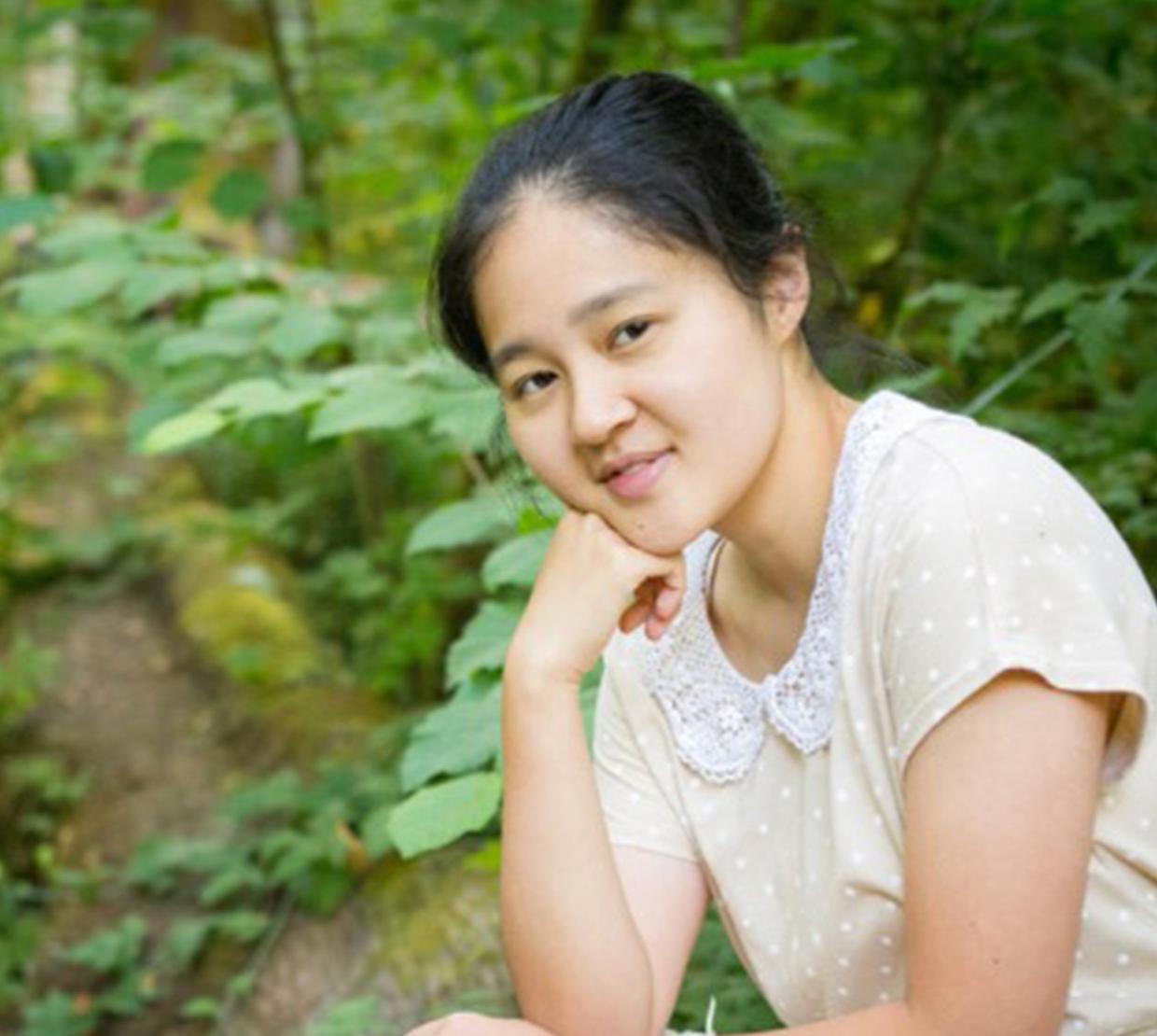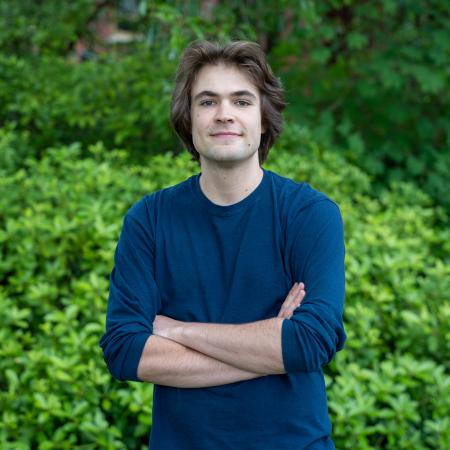Saki Nakai is not your average pre-med student. The graduating senior double majored in mathematics and psychology at OSU and has spent the last two terms studying abroad in France to complete a French minor. She is also one of two College of Science students and alumni to receive the 2022 Fulbright Student Award. This award will support Nakai for one year of independent study in cultural psychology at the University of Luxembourg.
Nakai was drawn to OSU for its Honors College and the opportunity to weave her diverse research interests into a thesis project. She started as a psychology major, but she became really interested in how math could be used to answer questions relevant to medicine and psychology.
Using math to support mental health
Completing the math major on top of her pre-med courses was a challenge, but Nakai is glad she did. “Sticking with the math major gave me a more enriching college experience,” she said. “The nature of the subject requires you to take time to do the homework, so people just naturally come together and collaborate in the Math and Statistics Learning Center (MSLC).”
Embracing teamwork and collaboration paid off for Nakai during the pandemic, when she took one of her hardest courses, MTH 343 Introduction to Modern Algebra, over Zoom.
“The entire class time is spent doing math problems, and the instructor Filix Maisch would hop around between Zoom rooms to help us,” she said. “I did struggle with it a lot, but the challenge really brings students together. I made some of my best math friends in that class.”
“Sticking with the math major gave me a more enriching college experience.”
Growing in confidence as a mathematician, Nakai took on research that combined her two majors, math and psychology, through the Summer Undergraduate Research Experience (SURE) Science program. Exclusive to the College of Science, SURE Science allows students of any year to get paid to do 11 weeks of full-time research over the summer with faculty from any college. Nakai completed a project using ordinary differential equations and dynamical systems theory to model bipolar disorder, under the mentorship of Vrushali Bokil, professor of mathematics and College of Science associate dean of graduate studies and research.
“SURE was a completely new perspective on medicine,” said Nakai. “The project was important to me because it was the first time I saw how I can use mathematics to actually answer questions in psychology and medicine, and that’s my ultimate career goal.”
Nakai also used applied math in her research project for the NSF-funded Research Experiences for Undergraduates program, a fully funded research experience which she completed at the University of Nebraska-Lincoln summer of 2019. Nakai’s project investigated reciprocal and non-reciprocal support in an Inuit community in Labrador, Canada using social network analysis. “My poster won first place in sociology at the REU program, and I got to go to the Emerging Researchers National Conference in STEM in Washington, D.C. to present it,” she said.
Cultural identities at home and abroad
Both of these projects were meaningful to Nakai because her motivation for pursing medicine is to help vulnerable populations and expand acceptance of diversity. Nakai was born in the U.S. to Japanese parents, so cross-cultural competence deeply informs her perspective. “That aspect of my personal experience has been a big part of the research I’ve done,” she said.
After high school, Nakai took a gap year to work in an international primary care clinic in Japan. “Since it was an international clinic, we had both Japanese- and English-speaking patients. The doctor spoke English, but some of the nurses didn’t,” she said. Nakai worked as both receptionist and translator wherever she was needed in the clinic.
Being immersed in both Japanese and U.S. cultures, Nakai researched some of their differences in her psychology coursework. She did a statistical analysis comparing the manifestation of shyness in Japan and the U.S. “Rates of shyness are higher in Japan, but a lot of it comes from cultural differences,” she said. Japanese culture is more collectivist, while the U.S. is more individualistic. How self-expressive or reserved people are is influenced by these cultural mindsets. Thus, we cannot apply the same scale to measure shyness in Japan that we would in the U.S.
“Doing that kind of research is empowering because it gives a voice to people who might not otherwise be heard,” Nakai said.
An internationally-informed physician
For the last six months, Nakai has been studying abroad at the University of Poitiers in west-central France. Living with a host family and studying exclusively French for six months has brought a new dimension to Nakai’s multicultural awareness.
Inspired by the experience, she will use her Fulbright award to complete a research project on cross-cultural psychology in Luxembourg, a small country that borders France, Germany, and Belgium. The project will explore identity construal and acculturation in American and Japanese expatriates living in Luxembourg’s unique multicultural and multilingual setting.
Nakai will use hybrid images and visual primes to analyze how people respond to cultural mixing. “I might show American participants a picture of a hamburger, a picture of a typical Luxembourgish lunch, and also a hybrid image, for example, a lunchbox with both. I can then ask them what they feel about these images, and with the hybrid image, do they think it’s the best of both worlds, or do they react to it with disgust?”
“Doing that kind of research is empowering because it gives a voice to people who might not otherwise be heard.”
Nakai has embraced living in the best of both worlds during her time in France. She and her host family have traded off cooking Japanese and French foods for each other. “I made sushi for them, and they were pretty fascinated by the whole process,” Nakai said. In return, they introduced her to delicious raclette and boeuf bourguignon.
Ultimately, Nakai wants to be a physician, and she anticipates that all of her multicultural experiences will enable her to be a dynamic, effective communicator with many different types of patients. She sees herself eventually serving Japanese-American communities in the U.S. “Multicultural Luxembourg will serve as a blueprint for the multicultural U.S. I want to make a society that would really value diversity,” she said.



